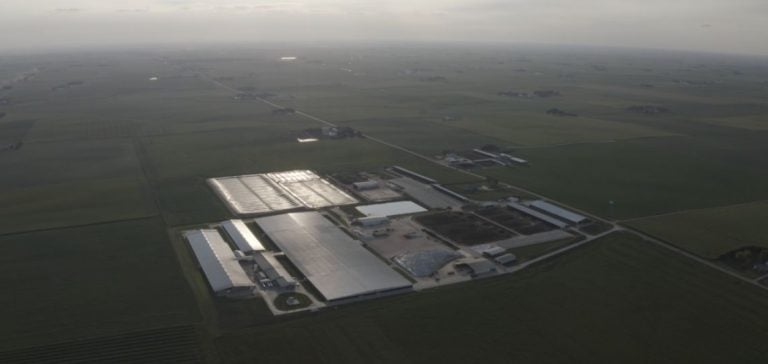Gevo, Inc. has finalized the sale of tax credits from its Renewable Natural Gas (RNG) project in Iowa, generated through the Inflation Reduction Act (IRA).
This transaction, valued at $20 million, enables the company to recover approximately $17 million after transaction costs.
These funds are being used directly to improve the company’s cash flow, facilitating future investments in clean energy, including sustainable aviation fuels (SAF). The Inflation Reduction Act, in force since 2022, has transformed the way companies monetize their clean energy credits.
Instead of committing to long-term projects, companies can now sell their credits directly, creating a new market for them.
This new flexibility reduces the time it takes to obtain liquidity, and offers an opportunity for companies like Gevo to focus on strategic projects without having to commit considerable funds up front.
Optimized production of renewable gas
Gevo’s RNG site in Iowa is designed to produce around 400,000 MMBtu of renewable natural gas each year.
This volume could increase in the future, depending on the optimizations the company plans to make.
This gas is derived from the fermentation of organic agricultural matter, mainly manure from dairy farms.
This process captures the biogas generated, purifies it into biomethane, and substitutes it for fossil gas in the transport sector.
One of the main assets of this project is its ability to generate carbon credits by avoiding methane emissions.
Partner farms install anaerobic digesters to process organic waste, thereby reducing greenhouse gas emissions.
The gas produced is then sold on the Californian Low Carbon Fuel Standard (LCFS) market, where it helps reduce transport-related emissions.
The project could thus avoid the emission of 175,000 tonnes of CO2 per year, an important factor in the context of energy sector decarbonization policies.
Market outlook for tax credits
Gevo’s transaction illustrates the growing opportunities offered by the tax credit market for energy companies.
Since the adoption of the IRA, these credits have become a strategic asset for financing energy transition projects.
Unlike traditional financing schemes, these credits can be sold to other companies looking to reduce their tax burden, without them having to invest directly in renewable projects.
This approach offers a major advantage for energy players.
By monetizing these credits quickly, Gevo improves its cash flow and increases its capacity to finance other projects, notably in the field of sustainable aviation fuels (SAF).
This fast-growing sector is a strategic focus for many energy companies, and the flexibility offered by the IRA enables financial resources to be better allocated.
Impact on the transport and aviation sectors
Gevo’s renewable gas project is part of a broader drive to decarbonize the transportation and aviation sectors.
In California, where the gas produced is sold, public policies strongly encourage the use of fuels with a low carbon footprint.
These measures, in conjunction with the LCFS, have fostered the development of a market in which alternative fuels, such as biogas, play a key role in reducing emissions.
Gevo is not limited to the production of renewable natural gas.
The company also has ambitions in the field of sustainable fuels for aviation, a strategic market given the decarbonization targets set by several governments.
The financing obtained through the sale of these tax credits will enable us to strengthen these projects and accelerate the development of new infrastructures for SAF production.
Economic and regulatory issues
The current regulatory environment, particularly in the United States, offers unprecedented opportunities for companies in the renewable energy sector.
Not only has the IRA simplified the transfer of tax credits, it has also created a favorable environment for clean energy innovation.
However, this still-evolving market is fraught with uncertainty.
The precise rules surrounding the application of credits, particularly those linked to the production of clean fuels under Section 45Z, are not yet fully defined, leaving a degree of risk for companies like Gevo.
Nevertheless, the sale of these credits illustrates the evolution of the energy sector, where financial flexibility and the ability to monetize assets quickly are becoming major strategic elements.
Companies capable of navigating this fast-changing environment are one step ahead of their competitors.






















